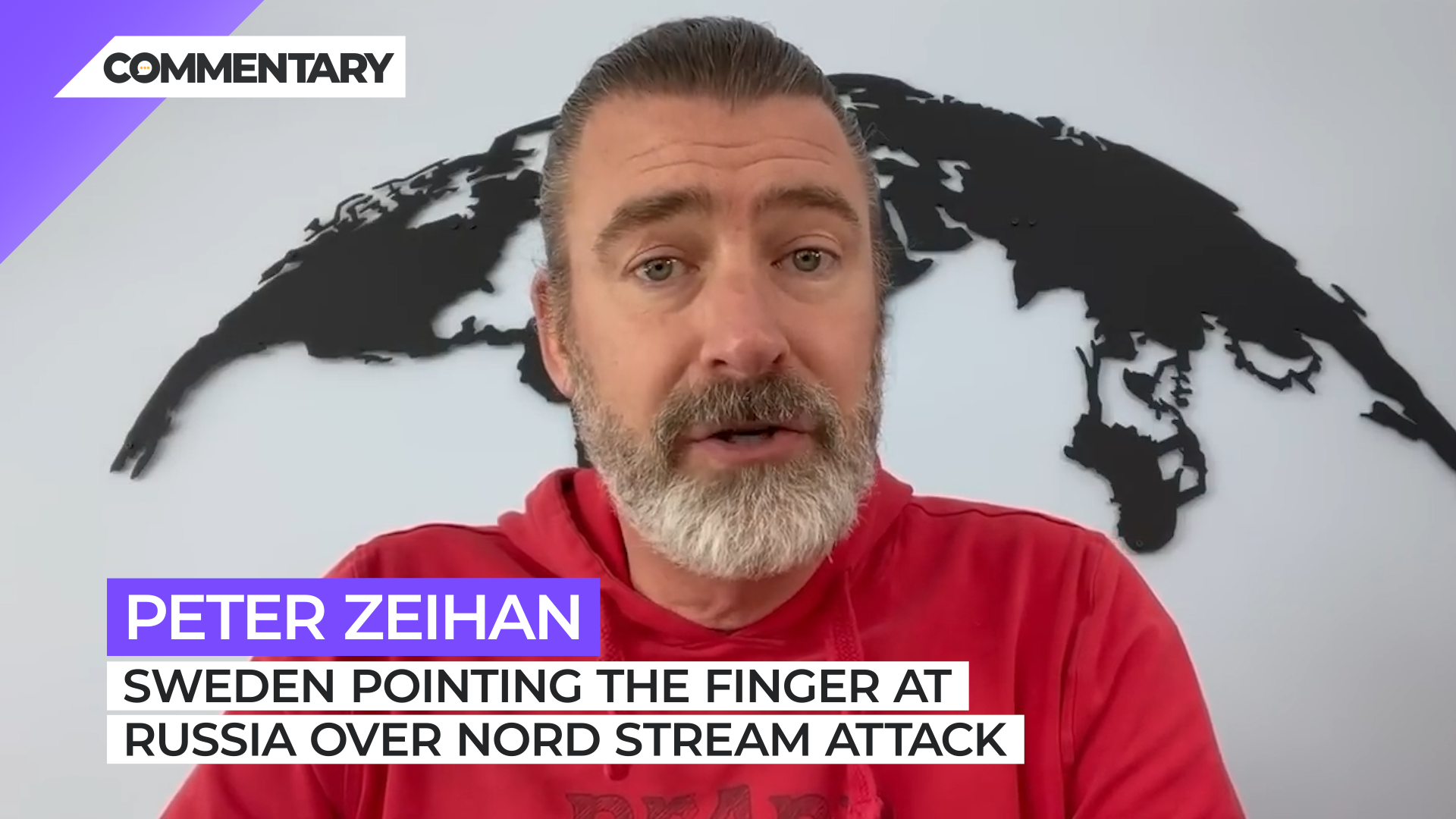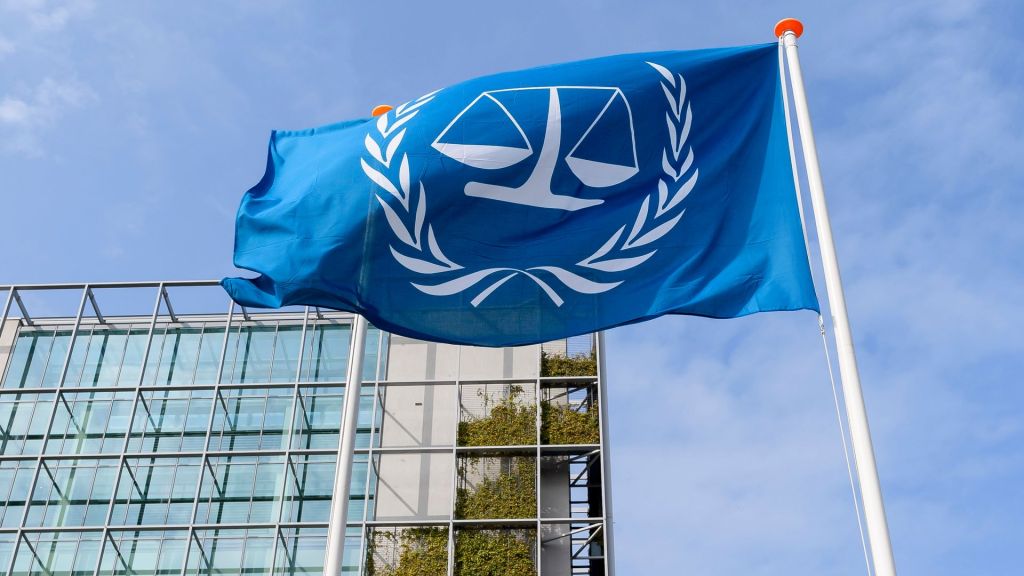
Commentary
-
Our commentary partners will help you reach your own conclusions on complex topics.
Hello, everybody, Peter Zeihan here, coming to you from Colorado. It is Monday the 21st of November, so Happy Thanksgiving week to everybody. We’re going to have a series come out this week on issues that have come out of the Ukraine war in terms of economics and strategy and everything else.
Now, we’re going to start with something that the Swedish government started announcing this past Friday, when they started releasing bits and pieces from the forensic work that they have done on the Nord Stream bombing. Now Nord Stream is a natural gas pipeline that goes under the Baltic Sea from the Russian mainland to the German coast. And when it was operating, it was providing the German economy with 40% of their natural gas usage. And without it, we are talking about the beginning of the end of Germany as an industrial power. More on that later in the series.
But the new news is that the Swedes had identified the type of explosive and they’ve actually gotten samples from within the pipeline, which means that they’ve got their nose so far deep into where the evidence would be that they know exactly who did it and how. For weeks, Sweden has been unofficially pointing the finger at Russia, Sweden has by far the most capable navy on the Baltic Sea. Sweden has by far the most advanced sonar and forensic capability in the area. And on the day that Nord Stream was bombed, they started quietly telling their European partners that it was definitely the Russians who did it. And if there’s anyone in the space that has the ability to identify what actually happened, it would be Sweden.
However, they have not made their findings official in any…possible way until now. And the question is, what has changed, and the question is, why have they not? Unfortunately, for the Europeans, the answer is pretty simple to the second questions. If they admit that the Russians are deliberately destroying critical European infrastructure, then that requires action. In the parlance of the United States, it makes Russia a state sponsor of terrorism. And countries that kind of fall into that category, you don’t trade with. And this, at least at this moment, has not been an option for the Europeans at all. Even with Nord Stream offline, Russia remains the number three supplier of natural gas to the continent. It is the number one source of the inputs that allows the Europeans to make fertilizer or to smelt aluminum. This is the raw material that goes into their steel. This is the raw material that goes into their copper. This is the raw material that goes into the European semiconductor sector. This is timber.
You remove all of that from the European system and there is no way you don’t have something that is at least as bad as the 2007-2013 financial crisis in the Europe space. This is the kind of thing that would trigger a recession, that it’s very possible that the Europeans wouldn’t recover from. Because we are, we are well past the point where Europe was a…consumer of goods. Europe has aged. The demographics of the continent are sharply terminal, and it has far more people in their 60s than their 50s than their 40s than their 30s. So the business model for Europe today is to take raw materials from somewhere else, metabolize them into finished goods, and then export them into markets that can actually consume. Without the Russians, they lose that first step, and the entire economic model goes away.
Now the sanctions that the Europeans have put on the Russians to this point were done with this in mind. The whole idea was you phase things out over months or even years, so that the European system has a chance to adapt to either get new suppliers, or more likely go through some very significant economic restructuring. So that on the other side of this, the Europeans aren’t nearly as dependent upon the imported materials, no matter where they came from.
The Nord Stream investigation threatens to throw that all into a tizzy, because if the Swedes actually do come out and provide the proof that everyone seems in Europe to know that the Swedes have, then all of a sudden everybody has to make some very specific decisions. And even if the Europeans don’t do it, with that evidence out there the Americans under existing law really don’t have much of a choice. And then the Americans will have to stop trading with any country that is still trading with the Russians. And in that sort of circumstance, the entire European economic and social model goes away in a very, very short period of time.
This is one of those situations where the truth will not set you free, but the truth appears to be about to come out. Next time we’ll dive into the energy situation and specific, give you an idea of what’s coming down the pipe. Until then.
-
Is the US looking for a war?
With conflicts, skirmishes and tensions simmering around the globe, and with the United States playing supporting roles in several of them, the question of whether the country getting involved directly is legitimate. The war in Ukraine, for example, has forced several European countries to reintroduce mandatory military service to confront the growing threat from Moscow.…
-
How future generations could shift US support for Israel
Israeli Prime Minister Benjamin Netanyahu addressed a joint meeting of Congress on July 24, calling for increased bipartisan support for Israel amid its 10-month war with Hamas. He praised President Biden’s “half century of friendship to Israel” and referred to Hamas as “sheer evil.” In the video above, Straight Arrow News contributor Peter Zeihan analyzes…
-
Why election of European Commission president is so important
Ursula von der Leyen has been reelected to another five-year term as president of the European Commission after a vote by EU lawmakers. Von der Leyen will now preside over a coalition that shifted to the right after recent European elections, where ultra-conservative parties won a record number of seats. In July, von der Leyen…
-
Protests in Bangladesh signal more trouble ahead
Public protests in Bangladesh against government hiring practices — and against the government’s military response to those protests — have left at least 174 dead and 2,500 jailed. Bangladesh’s people face an acute jobs and unemployment crisis, so public disagreements over hiring practices carry significant weight. The regime recently enforced a nationwide internet blackout as…
-
In US election, early polling doesn’t tell us anything yet
From President Joe Biden’s declining health to the attempted assassination of Donald Trump, there’s been a series of major political developments in the United States that might impact the results of the November election. These developments have led to renewed confusion, concern and debate regarding which candidate might win, and in the Democrats’ case, which…
Latest Stories
-
 Getty Images
Getty Images
Rep. Wexton who lost ability to speak delivers speech with AI
-
 Getty Images
Getty Images
VP Harris warns Netanyahu she will ‘not be silent’ over plight of Gaza
-
 Getty Images
Getty Images
Athletes reporting problems with eggs, meats at Olympic Village
-
 Getty Images
Getty Images
Americans overwhelmingly agree on Biden dropping out: Poll
-
 Getty Images
Getty Images
Advanced Placement test changes make them easier to pass
Popular Opinions
-
In addition to the facts, we believe it’s vital to hear perspectives from all sides of the political spectrum.
Latest Opinions
In addition to the facts, we believe it’s vital to hear perspectives from all sides of the political spectrum. We hope these different voices will help you reach your own conclusions.
The opinions published in this section are solely those of the contributors and do not reflect the views of Straight Arrow News.

















Latest Commentary
We know it is important to hear from a diverse range of observers on the complex topics we face and believe our commentary partners will help you reach your own conclusions.
The commentaries published in this section are solely those of the contributors and do not reflect the views of Straight Arrow News.
Peter Zeihan
Geopolitical StrategistHow future generations could shift US support for Israel
Why election of European Commission president is so important
Protests in Bangladesh signal more trouble ahead
Dr. Frank Luntz
Pollster and Political Analyst‘I don’t know’: Swing voters debate who best to replace Biden
‘Mad as hell’: Americans vent anger, frustration over politics
‘On death’s door’: Undecided voters react to first debate